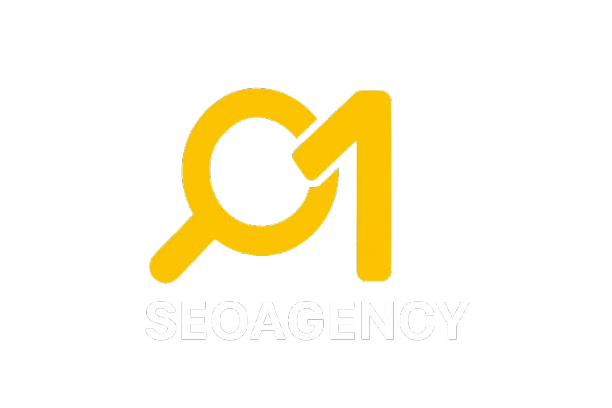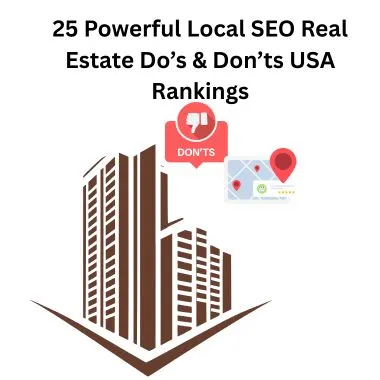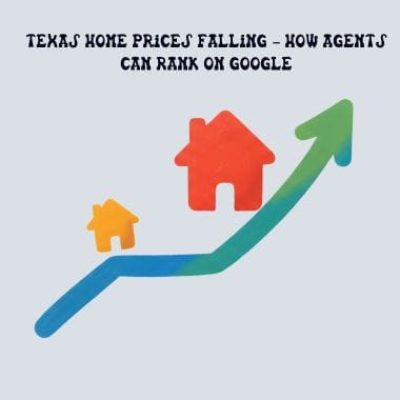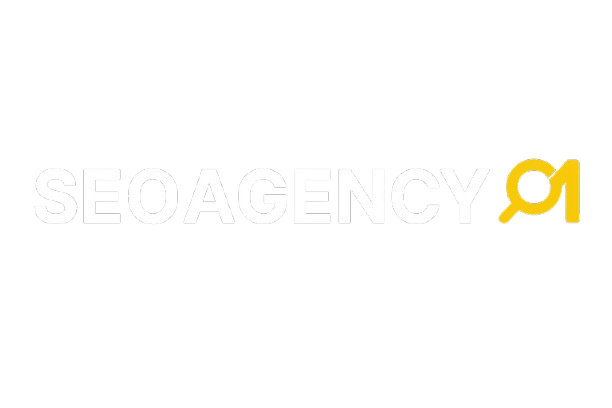Are your real estate listings not reaching local home buyers? You know your area is a great place to live. But if people can’t find you online, they will simply contact another agent. This is a common challenge. The solution is a strong Local SEO strategy.
For agents in the USA, local search optimization is essential. It helps your website and property listings appear in local searches.
When someone types “homes for sale” or “real estate agent near me,” you want to be visible. This process connects you directly with your community. It puts you in touch with people who are ready to buy or sell a house.
This guide provides 25 powerful do’s and don’ts. Each tip is simple and actionable. They will help you improve your search engine rankings.
You will gain more online visibility and attract new clients. We cover everything from optimizing your Google Business Profile to earning positive customer reviews.
A quick note: paid ads can deliver fast results. However, a strong local SEO strategy builds lasting credibility and trust. It is a long-term investment. This approach establishes you as the go-to expert in your local housing market.
Get Discovered by More Home Buyers in Your Community
A foundational element of this strategy is optimizing your online presence to connect with the local community actively seeking your expertise.
1:Master Your Google Business Profile: Your Digital Storefront
Think of your Google Business Profile (GBP) as your 24/7 digital storefront on Google Search and Maps. An optimized and active profile is critical for local search visibility and capturing high-intent searchers.
Key Steps for a Standout Profile:
- Claim and Verify Your Listing: The first step is to assert ownership. Google’s verification process (often via a postcard or phone call) confirms you are the legitimate business owner, granting you full control over the information.
- Maintain Absolute NAP Consistency: Your business Name, Address, and Phone number (NAP) must be identical across every platform online.
- Inconsistent information confuses both potential clients and search engine algorithms, harming your local search rankings.
- Engage Regularly with Posts and Updates: Use the posting feature within your GBP to share new property listings, announce upcoming open house dates, and offer valuable neighborhood insights.
- This consistent activity signals to Google that your business is active and relevant, while also giving searchers a fresh reason to click.
- Cultivate and Showcase Client Testimonials: Positive reviews are modern-day word-of-mouth.
- Encourage happy past clients to share their experiences. Responding to all reviews thankful for the positive and professional for any critical—builds immense social proof and trust with prospective home buyers.
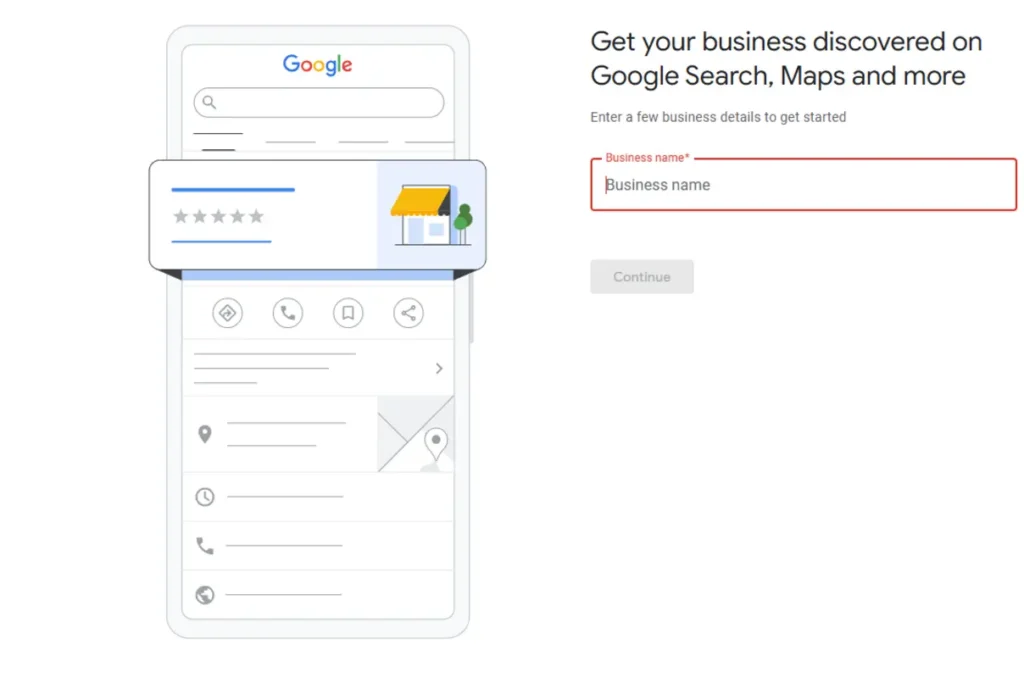
2:Optimize Your Website for a Seamless User Experience
Your website is your central hub, but it must be built for both users and search engines. A poorly performing site can drive potential leads away in seconds.
Essential Website Improvements:
- Prioritize Page Loading Speed: Home buyers are often on the go. A slow-loading website leads to high bounce rates.
- Use tools like Google PageSpeed Insights to identify and fix issues that slow your site down.
- Ensure a Flawless Mobile Experience: The majority of home searches start on a smartphone. Your site must be mobile-responsive, meaning it looks and functions perfectly on any device, from a desktop to a tablet or phone.
- Publish Hyper-Local Content: To truly connect with your market, create content that speaks directly to them.
- Write detailed guides and blog posts about the specific communities you serve. For example, articles like “A Family’s Guide to the Top Schools in [Neighborhood]” or “Why Downtown [City] is a Hotspot for First-Time Buyers” attract qualified traffic and establish you as the local area expert.
For a deeper dive into advanced techniques, this resource on winning SEO strategies for real estate agents offers valuable insights.
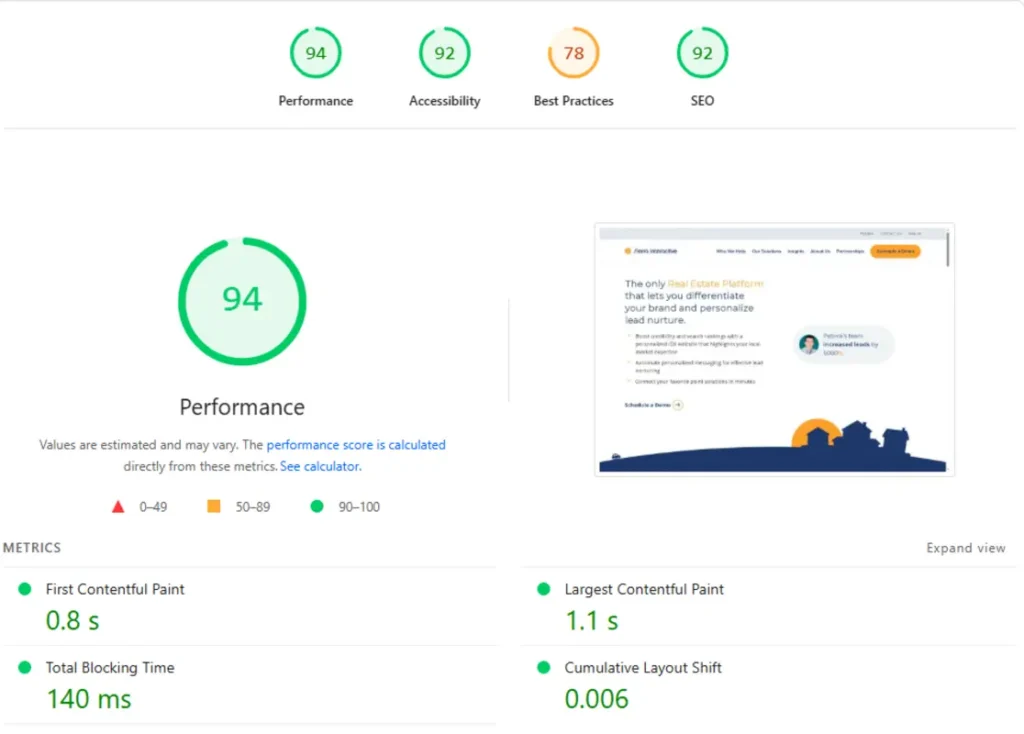
3:Expand Your Reach with Local Citations and Listings
Beyond Google, your business should be listed on other reputable online destinations. These local citations bolster your credibility and strengthen your visibility in local search results.
Strategic places to list your real estate services include:
- Major real estate portals (Zillow, Realtor.com, Trulia)
- Local business directories and Chamber of Commerce websites
- Community forums and popular regional blogs
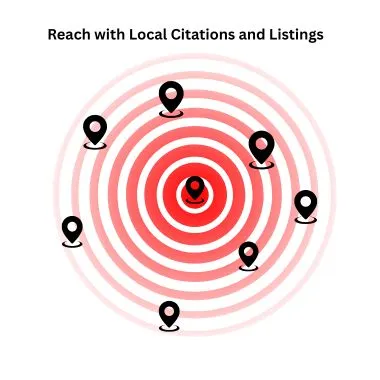
The DIY Approach: Weighing the Pros and Cons
Managing your own digital marketing is a valid path, but it’s important to understand the commitment involved.
The Advantages:
- Cost-Effective: You avoid the upfront expense of hiring a professional marketing agency.
- Full Creative Control: You have direct oversight of your brand’s messaging and online voice.
- Skill Development: You’ll gain firsthand knowledge of digital marketing principles.
The Challenges:
- Significant Time Investment: Properly managing a GBP, creating content, and building citations is time-consuming and can pull you away from client-facing work.
- A Steep Learning Curve: SEO and local search algorithms are complex and constantly changing.
- Risk of Minor Oversights: Small errors in your listings or outdated information can undermine your efforts and harm your online authority.
4. Weave Local Keywords into Your Narrative
The goal isn’t to stuff your pages with place names, but to naturally incorporate the terms your potential clients use. Think about how someone would phrase a search if they needed your service today.
- In Practice: Instead of just “auto repair,” a Tampa-based shop should use phrases like “our Tampa auto repair shop” or “serving the Hyde Park area.”
- A caterer might highlight that they are “the preferred catering service for downtown Tampa events.”
- Benefit: This semantic approach signals to search engines like Google that your content is geographically relevant, boosting your visibility in local search results.
5:Develop Dedicated Location Pages
If your business serves multiple towns or neighborhoods, creating individual pages for each location is a powerful tactic. These pages allow you to deeply connect with the specific community you’re targeting.
- How to Do It: A plumbing company could have a dedicated page titled “Plumbing Services in Miami,” which includes specific information like local testimonials from Miami residents, service areas within the city, and perhaps even references to local landmarks.
- Why It Works: These pages act as a specialized hub, making your service hyper-relevant for searches in that specific town or district.
- It shows you’re not just a distant option, but an integrated part of their community.
- For more on this, you can read Google’s guidelines on representing your business on Google, which aligns closely with this practice.

6:Become a Local Resource with Relevant Content
Your blog is the perfect tool to build authority and demonstrate your investment in the community. By writing about local topics, you provide genuine value beyond your core services.
- Content Ideas:
- A real estate agent could write a quarterly market update for the local housing scene.
- A dentist might post about participating in a community health fair.
- A bakery could share a blog post about “The Best Denver Neighborhoods for a Weekend Pastry Tour.”
- The Advantage: This content strategy fosters a deeper connection, positions you as a local expert, and encourages engagement and shares within the community, all of which are positive signals for search rankings.
7. Add Geo-Tagged Photos
To get your business to show up more in local searches, you need to prove to Google that your business is real and in the right location. A very powerful way to do this is by uploading photos.
Why You Should Upload Geo-Tagged Photos of Your Business
Upload original photos of your office, shop, or property location. These images send Google a strong signal that your business is active in that area, which builds local trust.
- Take New Pictures: Use your smartphone to take clear, recent photos.
- Show Your Location: Include shots of your storefront, building, and street signs.
- Show Your Team: Pictures of you and your staff at work are great for building trust.
This simple step helps your business look more legitimate to both customers and search engines. It shows you have a real, physical presence.

8. How to Get More Customer Appointments for Your Local Business
The fastest way to get more appointments is to turn on the booking button and messaging feature inside your Google Business Profile. This lets customers book a time or send you a message directly from your Google listing.
How to Set Up Booking on Google
Getting started is simple. You just need to connect a booking system that works with Google.
- Choose a booking partner like Square Appointments or SimplyMeet.
- Link your account to your Google Business Profile in the dashboard.
- Set your available hours for appointments and services.
Once you finish this setup, a “Book an appointment” button will appear on your profile. This makes it very easy for people to find you and schedule a meeting.
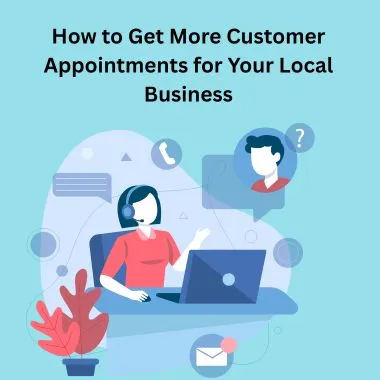
9. Define Clear Service Areas
Don’t just list your office address. Add neighborhoods, zip codes, or nearby cities as service areas. This helps your profile rank across the entire region, not just one spot.
10. Upload Short Videos
Go beyond photos. Post short videos such as property tours, open house highlights, or client testimonials. Videos are more engaging and help searchers connect quickly.
o sell your house quickly when the market is slow, you need to set the right price from day one. An overpriced home will scare away buyers. A competitive price will attract more interest and lead to a faster sale.
How to Price Your Home to Attract Buyers
Start by looking at what similar homes in your area recently sold for. These are called “comparables” or “comps.” You can also get a professional opinion.
- Check online estimates for a free, quick idea of your home’s value.
- Ask a real estate agent for a detailed market analysis. This is often more accurate.
- Be honest about your home’s condition. If it needs repairs, you must price it lower.
Getting the price right is the most important step for a quick sale.
Easy Home Updates for a Faster Sale
Small, affordable updates can make a huge difference. You want buyers to imagine themselves living in your house.
- Paint your walls a neutral color. This makes rooms look bigger and brighter.
- Deep clean every room, including carpets and windows.
- Improve your curb appeal. Mow the lawn and plant some colorful flowers.
These simple tasks help your home feel clean, fresh, and welcoming to potential buyers.
11. Use the Products/Services Tab Wisely
Avoid writing only general services. Add detailed options with keywords, for example:
- 3-Bedroom Homes for Sale in Dallas
- Luxury Apartment Consultation in New York
This makes your profile more relevant and easier to find in searches.
12. Post FAQs as Visuals
Don’t limit FAQs to plain text. Turn common buyer questions into image-based designs and upload them. This makes your profile more dynamic and attention-grabbing.The best way to get more sales is to answer your customers’ questions before they even ask. This builds trust and makes buying from you an easy choice.
How to Use Images for Customer Questions
Stop writing your frequently asked questions (FAQs) as plain text. Instead, turn them into simple picture guides. People notice images much faster than a block of text.
Here is why this method works so well:
It Saves Time: You will get fewer messages asking about basic information.
It Grabs Attention: A colorful graphic will stand out in a busy social media feed.
It Builds Trust: You show you understand what worries your customers have.
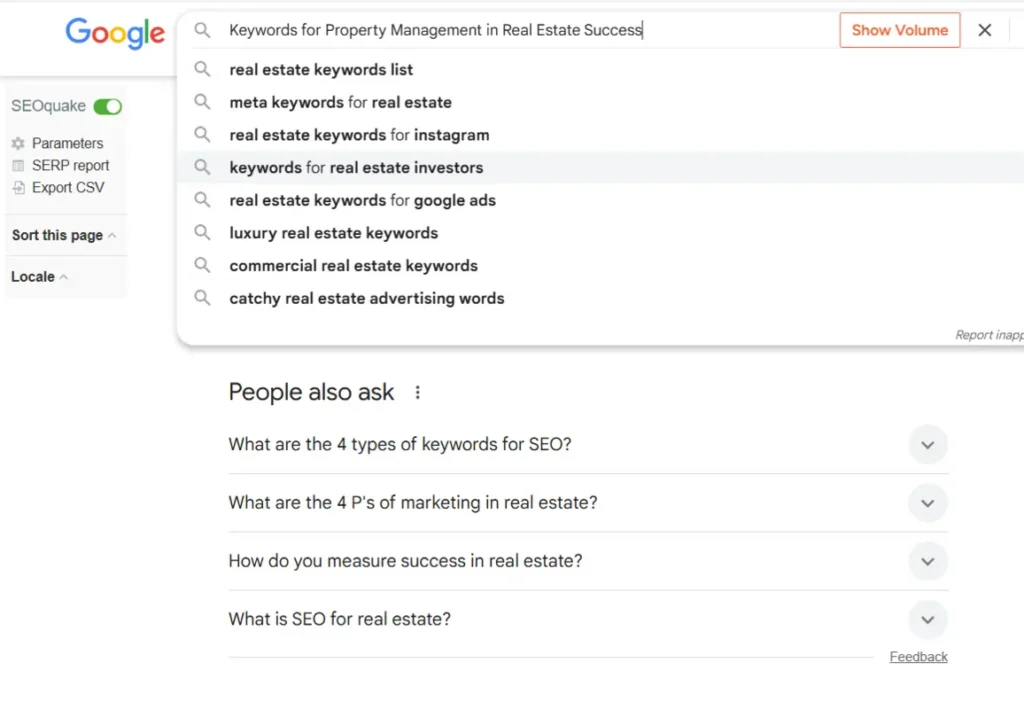
13. Track with UTM Links
Add UTM tracking codes to your website button on GBP. This helps you see exactly how much traffic is coming from your profile.
ou can see exactly who clicks your website button on Google Business Profile (GBP). The best way to do this is by adding a special tracking link, called a UTM code, to your website address.
This simple change helps you understand your customers better. You will know which visitors found you through your GBP listing.
How to Create a UTM Code for Your Website Button
Creating a UTM code is easier than it sounds. You just add a little bit of extra information to the end of your normal website link. This tells your website analytics where the click came from.
- Use a Free UTM Builder: Google offers a free URL Builder tool. You just fill in the blanks.
- Keep it Simple: For the “Campaign Source” field, always type “google-business-profile”. This is the most important step.
- Copy the New Long Link: The tool will create a new, long website address for you. Use this new link in your GBP.
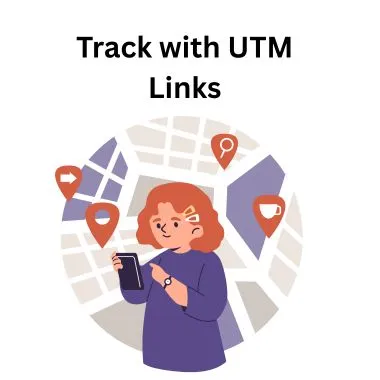
14. Highlight Seasonal Offers & Events
Share more than just new listings. Post seasonal offers or details of local events, for example:
- Spring Offer: Free Consultation for Home Sellers
- Join Our Open House in Houston – Sunday at 3 PM
14:local business Schema markup
First, you need to tell search engines who you are and where you are located. The best way to do this is by adding special code to your website called Schema markup.
This helps Google understand your business details.
- Implement local business Schema markup. This code clearly states your business name, address, and phone number.
- Embed a Google Map on your key pages. Place this map on your “Contact Us” page so customers can find you easily.
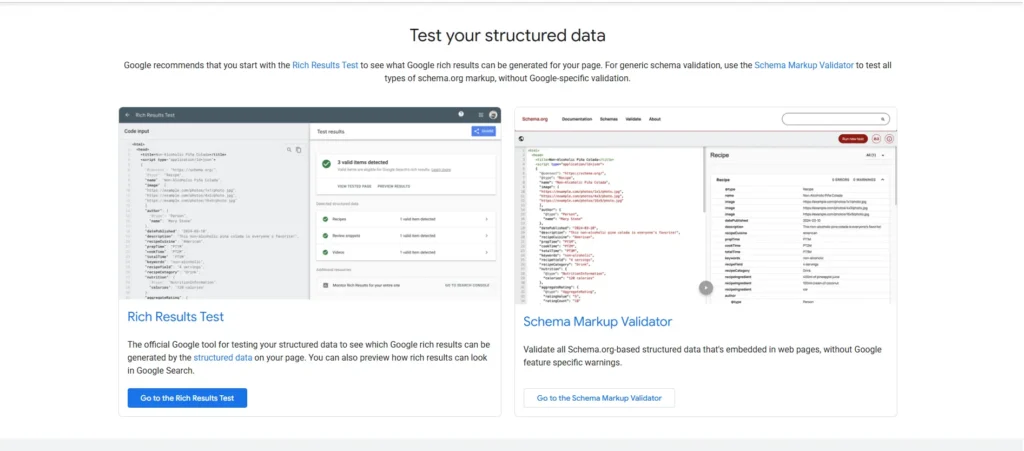
15:How to Build Quality Links for a Better Search Ranking
To improve your website’s visibility, you need good backlinks. A backlink is like a recommendation from another website. The best way to get them is by creating helpful content that others naturally want to share.
How to Get Links from Local Websites
Start by connecting with other businesses in your area. This is a great way to build relationships and get valuable links.
- Write for Local Blogs: Find popular blogs in your town or city. Offer to write a free article for them. In return, you can get a link back to your site.
- Join Community Event Pages: Many towns have websites for local events. If you sponsor or host an event, make sure they link to your website.
- List in Trusted Directories: Get your business on well-known local directories. The Chamber of Commerce website is a perfect example.
These methods help Google see your site as a trusted local resource.
Good Links vs. Bad Links
It’s important to know the difference between links that help and links that can hurt your site. Here is a simple comparison:
| Good Quality Links | Poor Quality Links |
|---|---|
| Come from local news sites | Come from spammy comment sections |
| Are from industry blogs | Are from unknown foreign directories |
| Appear on community websites | Are paid for in large, cheap groups |
Always focus on getting links from websites that real people in your community actually use.
A few good links are much better than hundreds of bad ones.
This strategy will make your website stronger and more reliable in the eyes of both Google and your customers.

Google Business Profile Blunders
16:Don’t: Operate with an Incomplete or Unverified GBP
Running your real estate business with an incomplete or unverified Google Business Profile (GBP) is one of the biggest mistakes you can make. An unverified profile signals to Google and potential buyers that your business might not be reliable.
It also limits your chances of showing up in local SEO results, which means fewer people will find your property listings online.
A half-filled GBP looks unprofessional and creates doubt in the minds of home buyers.
Imagine a buyer searching for a “real estate agent near me” and landing on a profile with missing photos, no contact details, or outdated information.
Chances are, they will move on to another agent with a complete and verified profile.
To build trust and authority in your local housing market, always verify your GBP through Google’s process usually by postcard, phone call, or email. Once verified, make sure every section of your profile is filled out.
Add your correct Name, Address, and Phone number (NAP), business hours, services, and a link to your website.
By keeping your GBP verified and up to date, you show both Google and your community that you are an active, professional agent. This boosts your online visibility, improves your local search rankings, and helps you attract serious buyers who are ready to take the next step.
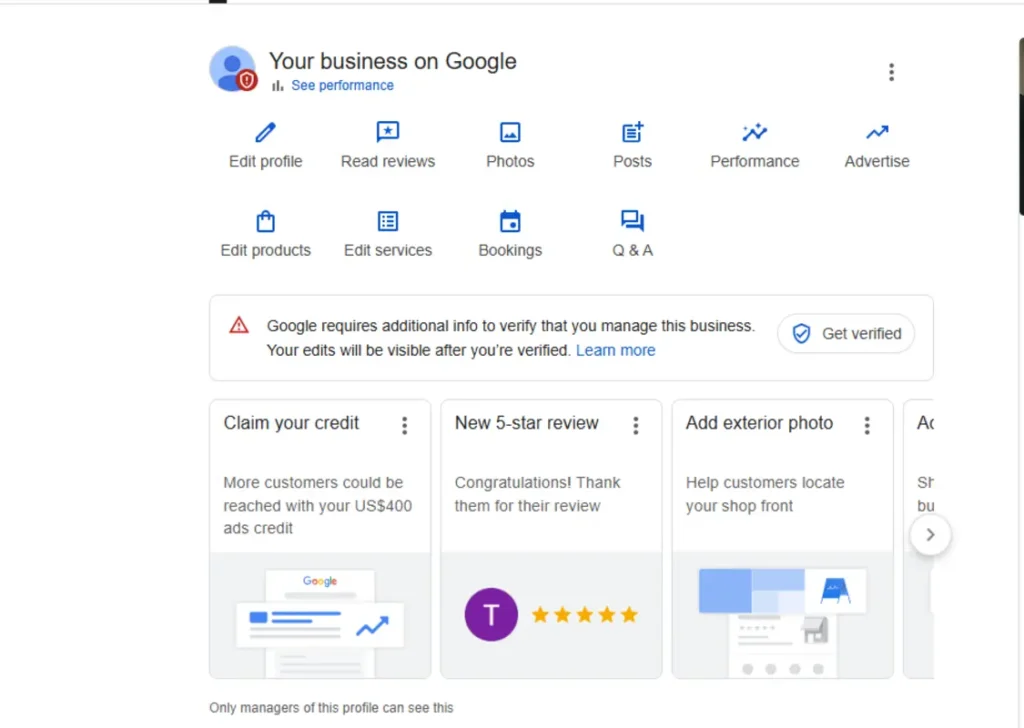
17:Don’t: Use a Misleading Address or Service Area
In real estate, trust is everything. When people search for an agent on Google, they expect to see correct information. If you use a fake office address or claim to serve areas where you don’t actually work, it can hurt your business in many ways.
- Loss of Client Trust
Imagine a buyer driving to your listed office, only to find nothing there. This leaves a bad impression and most clients won’t contact you again. - Real estate deals depend on trust, and wrong details break that trust instantly.
- Risk of Google Suspension
Google checks business profiles often. If they find your address or service area misleading, they may suspend or even remove your profile. - Once that happens, you lose local visibility and valuable leads.
- Wasted Leads and Time
A misleading service area attracts clients from locations you don’t cover. This only leads to wasted calls, messages, and unhappy users. - It’s better to target the exact neighborhoods or cities where you can actually help.
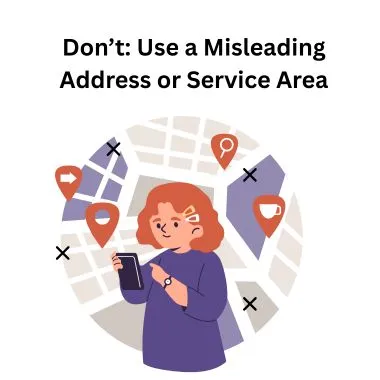
18:Don’t: Let Your GBP Posts and Q&A Section Go Stale
An outdated Google Business Profile (GBP) sends the wrong signal to potential buyers. If your posts are months old or your Q&A section has unanswered questions, it makes your business look inactive. In real estate, where buyers want quick answers and fresh property details, this can cost you leads.
Why this matters in real estate:
- Buyers often check GBP posts for new listings, open houses, or price updates. If they don’t see recent activity, they may move to another agent.
- A silent Q&A section makes clients think you are hard to reach or not interested in communication.
- Google also favors active profiles. Fresh content improves visibility in local search results.
How to avoid this mistake:
- Post at least once a week with updates like:
- New property for sale
- Upcoming open house event
- Local market insights
- Client success stories
- Check your Q&A section daily. Answer questions quickly with clear and helpful replies.
- Use photos or short videos to make your posts more engaging.
Keeping your GBP alive with updates and Q&A responses shows buyers that you are active, reliable, and ready to help them find the right property.
19:Don’t: Keyword-stuff your content; always write for humans first.
Adding the same keyword again and again makes your profile look fake. Google can also penalize this. Use natural language and write like you are talking to a client. Clear and helpful content always wins.
Don’t: Create thin, duplicate content for different neighborhood pages.
Copy-paste pages with only a few changes do not help in rankings. Buyers want real details about each area. Share unique insights like schools, parks, transport, and housing trends for every neighborhood.
Don’t: Start a blog and never update it.
An inactive blog looks unprofessional. Post fresh updates, market tips, or new listings regularly. This shows buyers and Google that you are active in your market.
20:Don’t: Buy fake reviews or incentivize 5-star feedback.
Many real estate agents think quick 5-star reviews will boost their profile. But fake reviews are easy to spot and can break trust with buyers. Google’s algorithm is smart enough to detect unnatural patterns.
If caught, your profile could get flagged or even suspended. Instead, focus on getting real reviews from genuine clients.
After a successful deal, politely ask your buyers or sellers to share their experience. Authentic feedback is far more powerful than fake stars.
Don’t: Ignore or get defensive with negative reviews.
Every real estate business faces unhappy clients once in a while. A negative review does not mean the end of your reputation. What matters is how you handle it. Never ignore or argue with the customer in public replies.
Instead, acknowledge their concern, apologize if needed, and offer to resolve the issue offline. This shows professionalism and builds trust with potential buyers who read your profile.
Many times, a calm and helpful response can even turn a negative reviewer into a loyal client.
Don’t: Use canned, generic responses to customer reviews.
Copy-paste replies like “Thank you for your feedback” feel cold and careless. Clients want to see that you value their voice.
Write personalized responses mention their name, the property they purchased, or the service they appreciated. This small effort makes a big difference in showing that you care.
Real estate is a relationship-based business, and reviews are a chance to strengthen those relationships publicly.
👉 If your real estate business is still struggling to appear on Google, you might be making other hidden mistakes. Check this step-by-step guide for solutions: 12 Proven Fixes Why My Business Is Not Showing on Google.
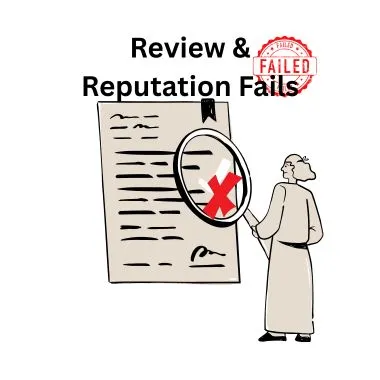
21:Don’t: Allow Inconsistent NAP Listings to Damage Your Local Ranking
Your NAP stands for Name, Address, and Phone number. These details must be the same across all platforms like Google Business Profile, Zillow, Realtor.com, Facebook, and your own website.
- If your business name is written differently on different platforms (for example, “ABC Realty” vs. “ABC Real Estate LLC”), Google gets confused.
- If your phone number or address doesn’t match everywhere, search engines may not trust your business.
This inconsistency can hurt your local ranking, making it harder for buyers to find you online. Always keep your NAP details updated and consistent across every directory and listing site.

22:Don’t: Have a Website That Provides a Poor Experience on Mobile Devices
Most home buyers today search for properties on their phones or tablets. If your website is slow, hard to read, or not mobile-friendly, you risk losing clients instantly.
A poor mobile experience can include:
- Tiny text that forces users to zoom in.
- Images that take too long to load.
- Buttons or links that are too small to tap.
Google also favors mobile-friendly websites. If your site is not optimized for mobile, your rankings will drop. To understand why this matters, check out this guide on mobile-first indexing explained with simple tips.
Make sure your website is responsive, fast, and easy to use on all devices.
23:Don’t Use Schema Happens to Google Business Profile (GMB)
1. Fewer signals reach Google
Schema is like a “special language” that makes your website clearer to Google. Without it, Google may struggle to fully understand your business categories, reviews, and NAP details (Name, Address, Phone).
2. Local SEO is not as strong
Schema helps Google know that your business is truly local and shows which area you serve. Without it, your local ranking signals become weaker.
3. Rich results are missed
With Schema, your website can appear with more details in search results (like rating stars, FAQs, or events). This indirectly boosts your GMB because more people are likely to click on your profile.
4. Trust signals are reduced
Google builds trust from consistent and clear signals. Schema makes that trust stronger. Without it, your GMB visibility can suffer in the long term.

Google Business Profile (GMB) If We Don’t Use Schema?
24:Don’t Start With an SEO Audit what happened
1. Wrong or Incomplete Business Information
- Your name, address, phone number, or hours may be outdated.
- Customers may call a wrong number or visit at the wrong time.
- This leads to bad trust and negative reviews.
2. Poor Visibility in Local Search
- Without an audit, you won’t know why your profile isn’t ranking.
- Competitors who fix these issues will outrank you.
- Your business won’t appear in top results for keywords like “best real estate agent near me” or “plumber in [city]”.
3. Missing Local SEO Opportunities
- Wrong categories, missing keywords, or no service areas reduce your reach.
- Example: If you’re a restaurant but don’t list “delivery” or “takeaway,” Google won’t show you for those searches.
4. Weak Reputation Management
- Reviews may go unanswered.
- Fake or negative reviews may remain visible.
- Without an audit, you won’t track or improve your review strategy, and customers will skip you.
5. Bad User Experience
- Outdated photos, broken links, or missing Q&A make your profile look unprofessional.
- Customers lose confidence and choose a competitor who looks more active and reliable.
6. Wasted Marketing Efforts
- You may keep posting updates, offers, or ads.
- But if the core SEO problems (like verification, categories, and local keywords) are not fixed, your efforts won’t bring results.
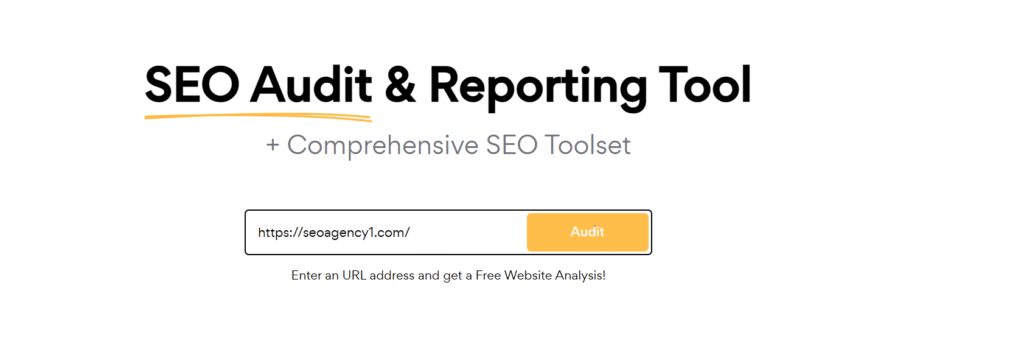
25:faqs:
How do I use Google Search Console for local keyword ideas?
Review the “Search results” report. Look for queries where your site appears but isn’t ranking high. These are untapped local keywords for your city or neighborhood.
What should I do if my Google Business Profile gets suspended?
Remain calm. Read Google’s suspension email to understand the reason. Fix the violation (like an incorrect address) and submit a detailed reinstatement request.
How does a searcher’s proximity impact my local pack rankings?
It’s a major factor. Google prioritizes businesses closest to the searcher. A precise, verified office address on your profile is critical for ranking in nearby searches.
What is the “Local Finder” and how do I use it?
Click “More places” in the local map results to open the Local Finder. Analyze your competitors’ reviews, photos, and posted responses to understand what makes their profiles effective.
How do I track my local pack rankings for different zip codes?
Use a dedicated local rank tracking tool. These tools show you where your business appears for searches originating from specific zip codes and neighborhoods.
Why might a competitor outrank me with a less-optimized GBP?
They likely have stronger off-page signals. This includes more genuine, positive reviews from local clients and more high-quality websites linking back to their domain.
What emerging local SEO trends should I watch?
Optimize for voice search using natural phrases like “realtor near me.” Create video content, like neighborhood tours, as Google integrates more video into local search.
What are the best title tag and meta description formulas?
A great title tag is: “Real Estate Agent in [City] | [Your Name]”. For the meta description, state your value: “Top-rated [City] realtor. Get a free home valuation. Call today!”
How can I get high-quality backlinks from local community blogs or news sites?
Start by becoming a helpful local resource. Offer to write a free article for them, like a “Neighborhood Market Update.”
You can also share a newsworthy story, such as a client’s unique first-home-buying experience. This provides them with valuable content in exchange for a link.
What type of hyper-local content should I create for my community?
Go beyond listings. Create guides on local topics, like “A Parent’s Guide to the Top 3 Parks in [Town Name]” or “The Best Coffee Shops for Remote Work.”
This useful information builds trust and shows you’re a true neighborhood expert, not just a salesperson.
How can I use video content to boost my local visibility?
Video is powerful for local reach. Create short tours of a neighborhood’s main street, parks, or favorite restaurants.
People searching “what’s it like to live in…” will find these. Post them on YouTube, Facebook, and Instagram to appear in local searches and social feeds.
What is “Link Reclamation” and how can it fix my real estate site’s citation errors?
Link reclamation finds online mentions of your business that forgot to link to your website. For example, if a local blog wrote about you but didn’t include a link, you simply ask them to add it.
This fixes errors and turns mentions into valuable backlinks, improving your site’s authority.
Conclusion: Dominate Your Hyperlocal Market
Remember, success in Local SEO is not about a single, grand gesture but the consistent application of these core principles:
- Prioritize the User Experience: From a mobile-friendly website and fast load times to genuine, positive reviews, every action should be geared toward building trust and providing value.
- Embrace Consistency and Accuracy: Your NAP (Name, Address, Phone Number) must be a flawless, uniform footprint across the entire web. This is the bedrock of local search credibility.
- Think Local, Act Local: Create content that speaks directly to your community. Showcase neighborhood guides, market reports, and property highlights that prove you are the undisputed local expert.
Avoiding the critical missteps like neglecting your Google Business Profile, inconsistent citations, or ignoring customer reviews—is just as important as implementing the positive strategies.
